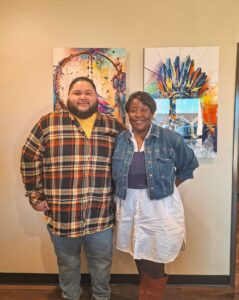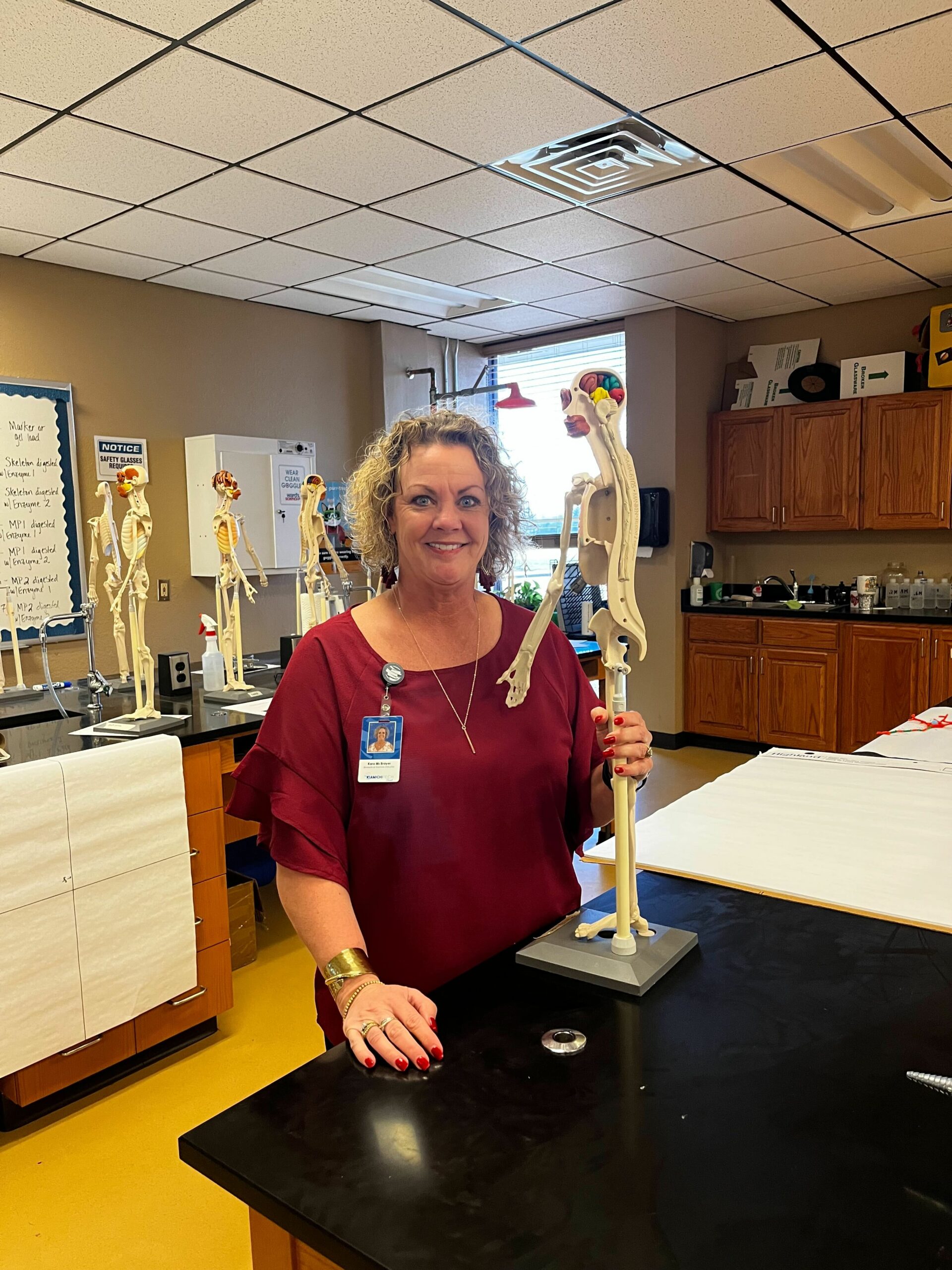
Developing the Next Generation of Biomedical Innovators: Biomedical Sciences at Kiamichi Technology Center in Durant
April 3, 2023 by Jessika Leatherbury
By: Sunnie Dawn Baker
 One of the best ways to develop the next generation of innovators is to lay a solid groundwork of education and training that is highly engaging. This was the inspiration for Kiamichi Technology Center in Durant to start their Biomedical Sciences program eight years ago. Leslie Powell, one of the two instructors for the program, explains she “saw students who were entering college and unprepared for the rigorous science and math classes they would need. There were a lot of dropouts and major changes, so this is all about getting those kids ready to be successful once they get to college.” Powell, who had been teaching at Rock Creek schools for nineteen years, was brought on to start the program. One year later, Kara McBrayer, a twenty-three year veteran of the public school system, was brought onto the team to join her.
One of the best ways to develop the next generation of innovators is to lay a solid groundwork of education and training that is highly engaging. This was the inspiration for Kiamichi Technology Center in Durant to start their Biomedical Sciences program eight years ago. Leslie Powell, one of the two instructors for the program, explains she “saw students who were entering college and unprepared for the rigorous science and math classes they would need. There were a lot of dropouts and major changes, so this is all about getting those kids ready to be successful once they get to college.” Powell, who had been teaching at Rock Creek schools for nineteen years, was brought on to start the program. One year later, Kara McBrayer, a twenty-three year veteran of the public school system, was brought onto the team to join her.
Powell and McBrayer work well as a team, splitting up the course load between the two of them. In addition to the core classes of Algebra II, AP Biology, Chemistry, and Trigonometry/Calculus, they also teach the four specialized Biomedical Science classes from the Project Lead the Way curriculum. In order to teach those courses, they both had to undergo a rigorous eight week training program. Even though they each only teach two of the courses, it was important to them to do the training for all the classes so they could be synchronized with each other.
This two-year program is designed for high school students in grades ten through twelve. Though students can enter their junior year of high school, it is preferable that they begin their sophomore year in case they want to take concurrent college courses their senior year. Powell and McBrayer start recruitment for their program when students are in ninth grade. Students are required to apply to the program and their acceptance is based primarily on good grades and attendance.
While Powell and McBrayer teach the four core curriculum courses—two in science and two in math—it is the Project Lead the Way courses that most engage the curiosity of the students. This curriculum engages students by using real-world problems. Through the critical analysis of real situations, the students learn the science behind the examples and learn how to apply critical problem solving to many other fields. This also makes the courses more interesting to the students, as they remember the content better and learn how to apply it instead of just answering questions on a test and relaying information from lectures.
There are four courses in the curriculum: Principles of Biomedical Science, Human Body Systems, Medical Interventions, and Biomedical Innovations. The first course begins with a crime scene with a victim on the floor. The students start off as forensic investigators, gathering evidence, and then they take on the role of medical examiner. Through this process they learn many different biological concepts. For the next unit, they take on the role of a doctor and work towards diagnosing hypothetical patients while integrating the knowledge they are learning as well as different laboratory skills.
For the second semester, McBrayer takes the students for Human Body Systems. Instead of just learning the different systems in the human body, they explore how the systems work together. For instance, the students learn about how the endocrine system can affect the nervous system and vice-versa. While they work on dissections, they also communicate their knowledge and do presentations. Using one example, McBrayer gave her students an assignment to pick a person who was in the sideshows of the Barnum and Bailey Circus, such as the Bearded Lady, the World’s Tallest Man, and the Four-Legged Girl. The students did research on the subjects to determine what could have caused their conditions and then presented their findings to the class.

Medical Interventions is the third semester course, also taught by McBrayer. In this course, the students get to do some fun and engaging labs as well as other hands on activities. They extract their own DNA, purify it, and run it through a thermal cycler to see if they have a specific taste receptor gene that makes foods and beverages, like diet sodas, taste bitter. They also learn suturing techniques as well as building prosthetics and casts, while being asked to think about how to make these techniques better. For one student, they created a cast that was structurally sound yet still breathable and less itchy.
In the final course, Biomedical Innovations, the students come back to Powell and get to take more of an independent study approach. There are a total of seven possible “missions” but there is never enough time to complete all of them. Usually a student will get through three in a semester, so they pick the ones that resonate with their interests and goals. Some students choose the mission where they design an emergency room and others work with water testing for municipalities. With the epidemiology mission, the students had a real-world look at this area when they were actually in the beginnings of the Covid Pandemic. While the pandemic was a tragedy, it was interesting for these students to examine what was going on from a scientific point of view and make their own predictions, many of which came true. Yet another mission is an independent research project where students can take one of three tracks: job shadowing, laboratory research, and engineering. For the job shadowing, students will pick a profession and then learn what it is actually like on a day to day basis. For laboratory research, the students have to come up with their own research ideas and figure out their own procedures and what materials they are going to need. This semester, for the first time in the course of the program, a student, inspired by an amputation her grandmother had to face, is taking the engineering approach by designing a prosthetic big toe that is functional and helps with stability.
Powell and McBrayer take pride in their work and their students. They teach them the skills they need to succeed in college and careers, while also engaging their curiosity and scientific creativity. These classes are designed to get the students to “think outside the box” as they don’t just learn the information, they apply it and play with it. Powell and McBrayer aren’t just teaching these students science, they are laying a groundwork for a new generation of innovators, teaching their students how to be successful in the biomedical sciences, while also thinking about creative solutions to existing problems.
Sign up to receive more news from the Ada Jobs Foundation HERE!
Written by
Jessika Leatherbury
You may also interested in:
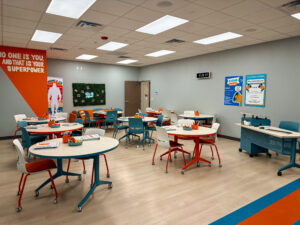
BUILDING FUTURES: WORK READY ADA CELEBRATES ITS FIRST YEAR
BY: CATHLENA SPENCER Just one year ago, Work Ready Ada, a new employment readiness program, was launched in partnership with Pontotoc Technology Center (PTC). The program, funded by Oklahoma Human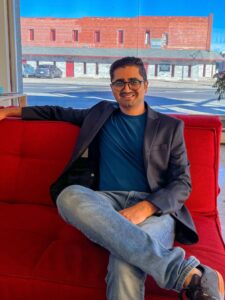
AI IN EDUCATION: A CONVERSATION WITH VINAYAK MITTY
BY: SUNNIE DAWN BAKER One of the areas in technology with the most potential for entrepreneurial growth is Artificial Intelligence (AI). AI is increasingly shaping every part of our lives,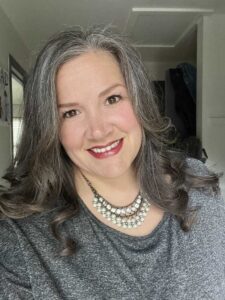
Adapt and Overcome: Allison Poe’s Recipe for Resilience and Growth
By: Sunnie Dawn Baker Allison Poe has always followed her feet. She waits for the signs to appear and, once she recognizes them, she travels that path, and has never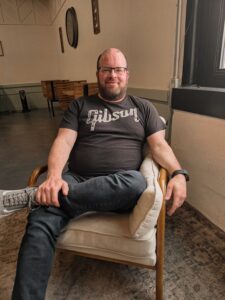
Jeff Warren: A Life in Sound, Vision, and Storytelling
By: Sunnie Dawn Baker When Jeff Warren got involved in the Houston music scene as a teenager, he had no clue where his path would lead. Now, nearly thirty years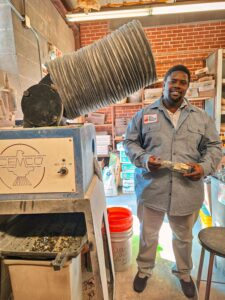
From Pitch to Progress: ECU's Glass Recycling Program Turns Waste into Opportunity
By: Sunnie Dawn Baker In 2018, Dr. Christine Pappas competed in Ada Jobs Foundation’s Big Pitch Competition by promoting grinding glass bottles into sand. She won the Big Pitch that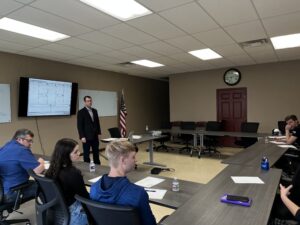
The Importance of Customer Discovery: Know Your Audience and Know Your Market
By: Sunnie Dawn Baker Entrepreneurs and small business owners must consider many factors to achieve success, with their target market being one of the most crucial. Sometimes, when people are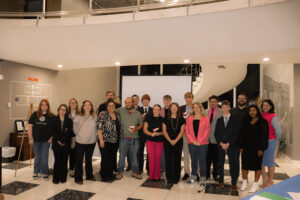
What Does Economic Development Do for You? The Significance of the Economic Multiplier
By: Sunnie Dawn Baker People often find the term “economic development” vague and confusing. Understanding how economic development works and benefits the community can be challenging. Though there are many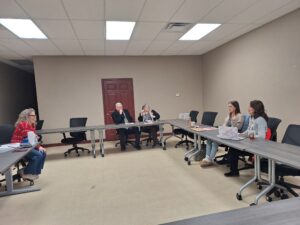
Helping Entrepreneurs One Workshop at a Time: Lauri Rowe and QuickBooks for Small Businesses
Entrepreneurs tend to be filled with passion and big ideas. They have found a solution to a problem they see in the world, and they barrel ahead, excited for their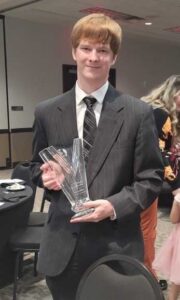
Hunter Cook: Technology, Entrepreneurship, and the Written Word
By: Sunnie Dawn Baker Hunter Cook started writing when he was seven years old. At first, he wanted to write comic books, but then he realized he couldn’t draw. He